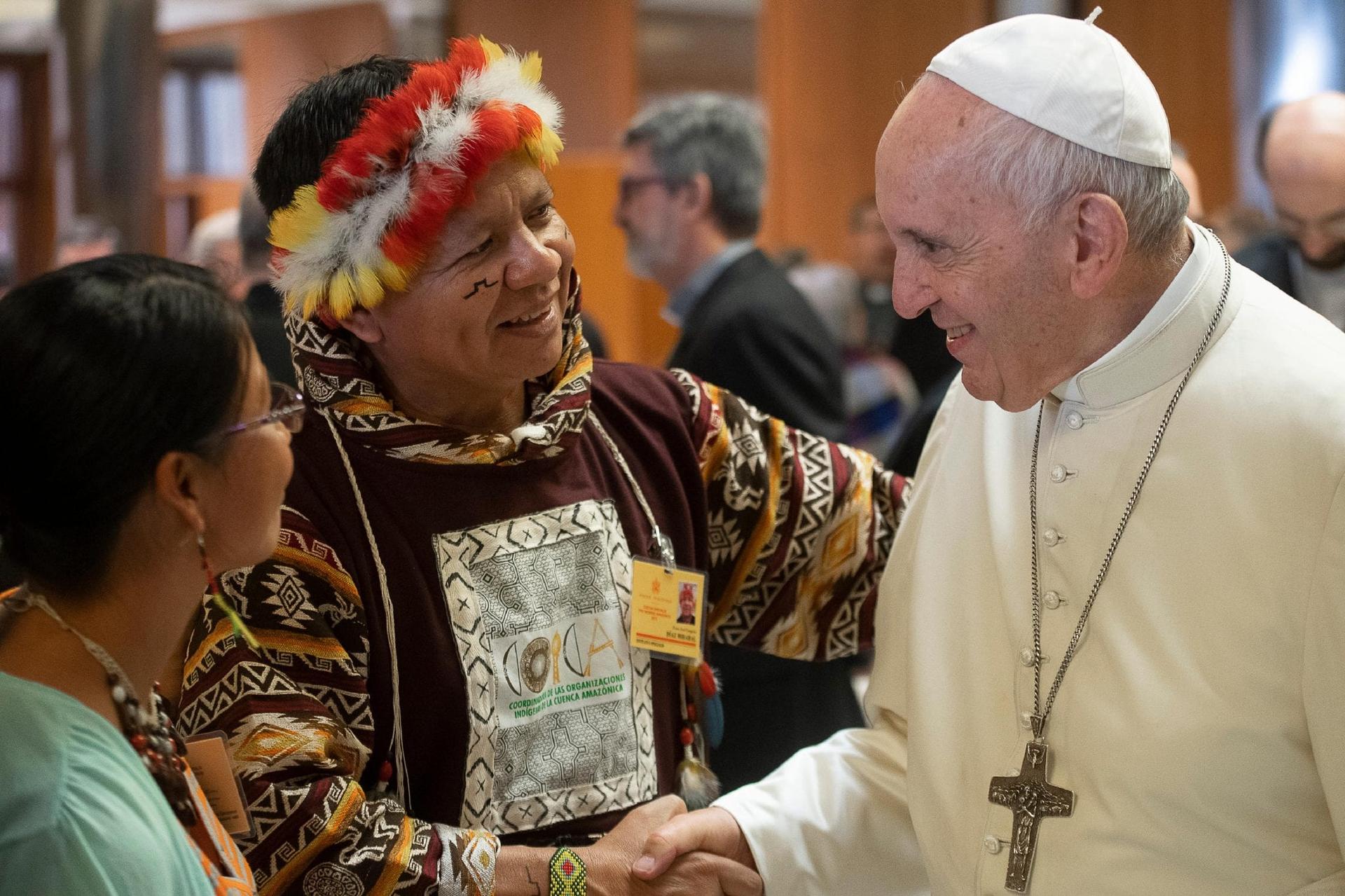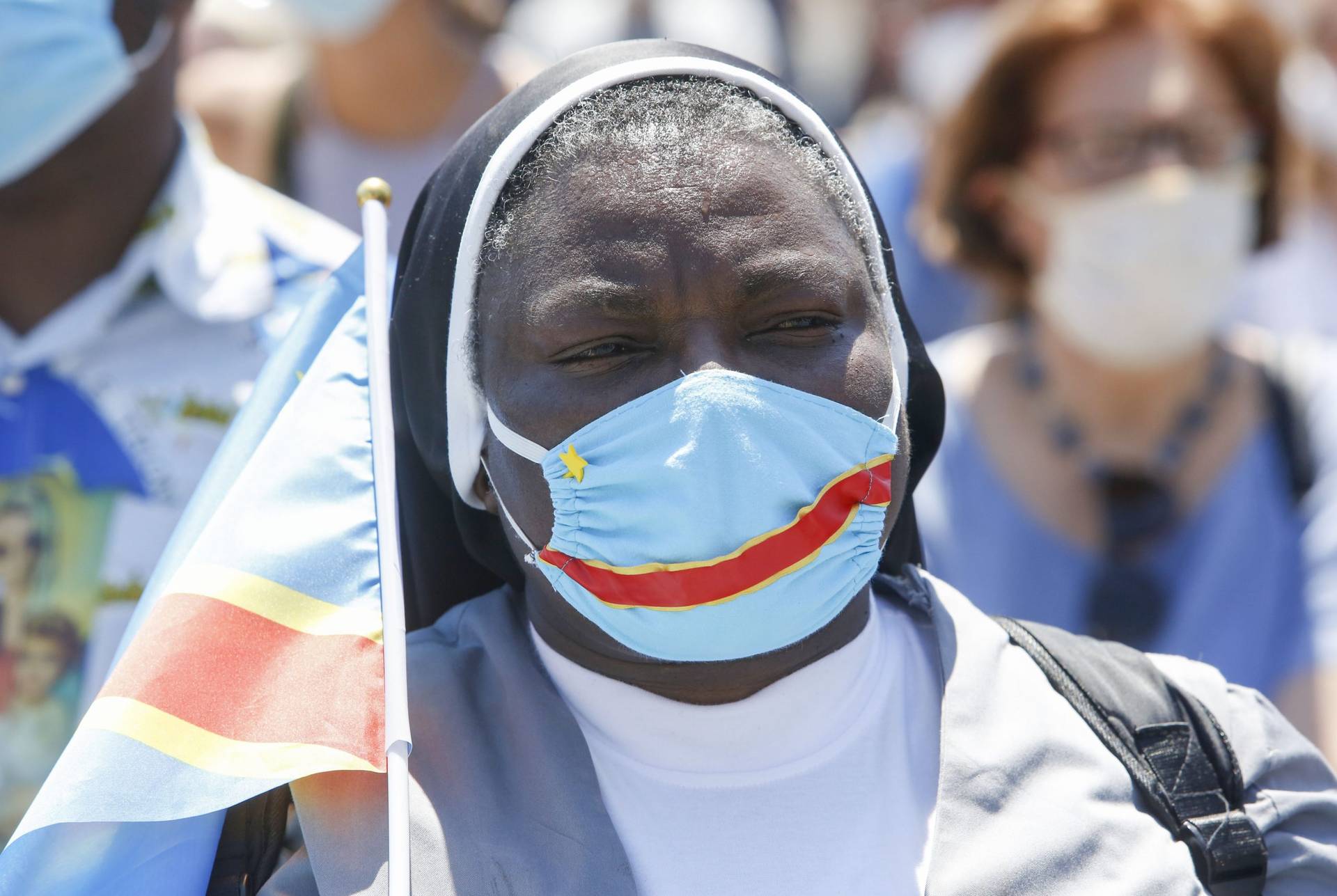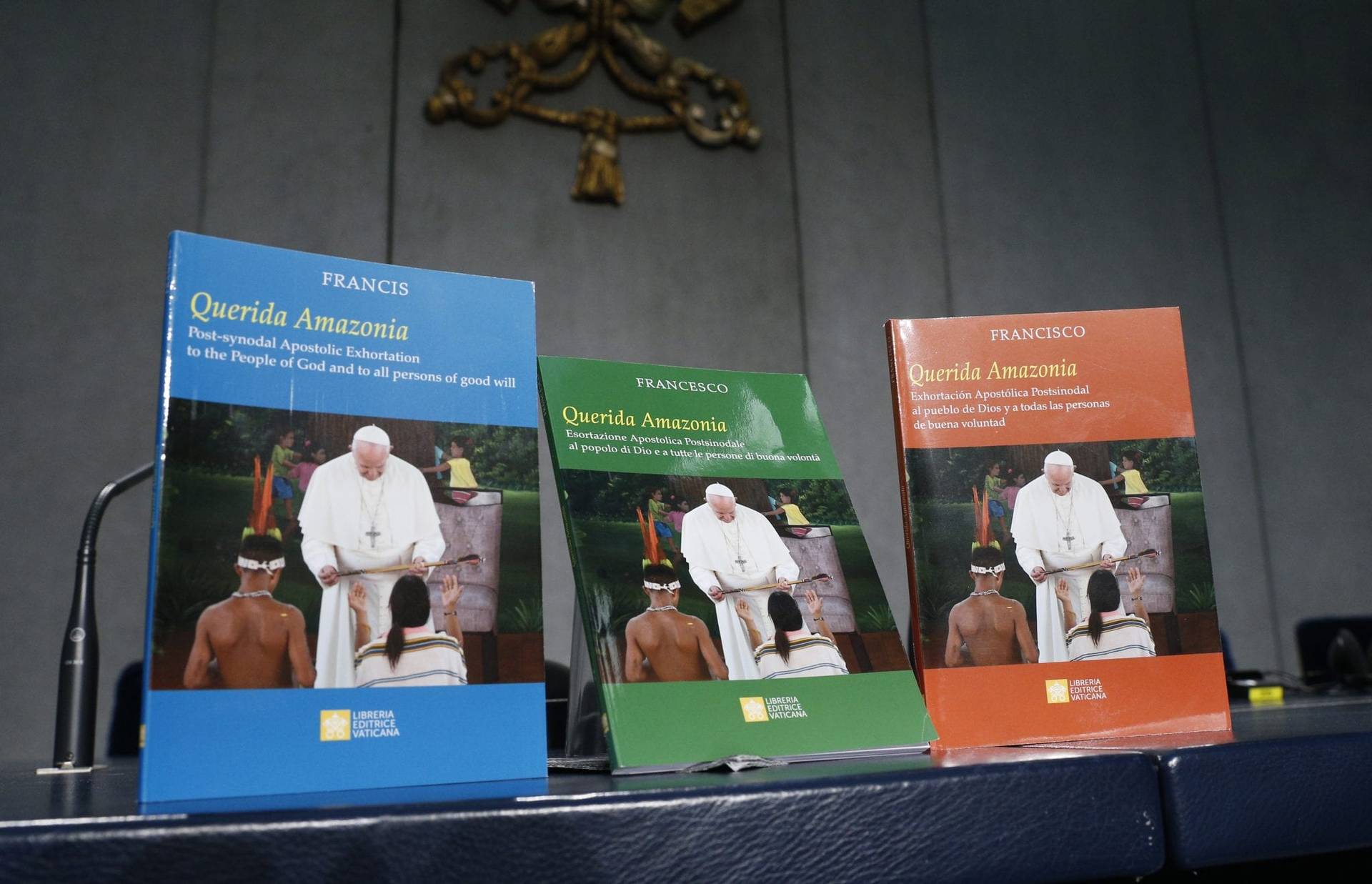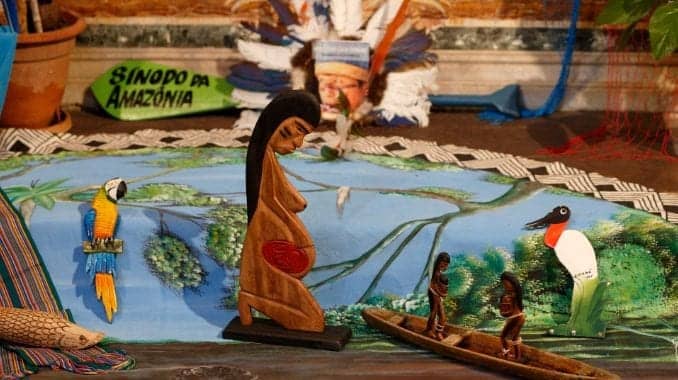ROME – One of the indigenous leaders participating in the Oct. 6-27 summit of bishops on the Amazon region urged Pope Francis and the Catholic Church as a whole to help them talk with “the new gods of the developed countries,” naming Google, the International Monetary Fund and the World Bank.
“No country escapes the martyrdom of the Amazon,” said Gregorio Diaz Mirabal, head of COICA, an umbrella group that unites the more than 4,500 communities that live in the Amazon region. An estimated 500 different indigenous groups live in an area with some four million inhabitants.
“We want to thank Pope Francis because today, the Church is the only institution that is calling for the protection of the planet,” he said on Monday, adding that if something is not done, “we will all disappear.”
“The Church is the only institution that cries out for the world to wake up,” he said. “We believe in dialogue. We want to see an end to the violent invasions and theft of land.”
RELATED: Indigenous leader says ‘Brother Francis’ risking his life for the Amazon
Diaz Mirabal spoke with journalists on Monday, at a daily press briefing organized by the Vatican’s communications team for the Oct. 6-27 Synod of Bishops on the Amazon.
Also present were Bishop Carlo Verzeletti from Castanhal, Brazil; Bishop José Ángel Divassón Cilveti, from Venezuela and Josianne Gauthier, Secretary General of CIDSE, a network of Catholic social and environmental justice organizations.
During the press conference, Diaz Mirabal also said that the group he leads is always seeking new alliances, and that’s why they’re taking part in the synod.
“We hope to tackle and resolve problems, especially disease and violence,” he said. “We have no other options besides the synod. What comes afterwards is most important for us. We must reinforce relations between the Church and indigenous peoples.”
Diaz Mirabal also said that he had asked the pope and the synod “to help us talk to the new gods of developed countries, which are Google, the IMF, the European economic community, the World Bank, and the governments of the Amazon countries, so that they sit down to talk to us as the synod is doing,” in particular about the preservation of the rainforest.
The indigenous leader also voiced strong support for the 30,000 indigenous who rallied in Quito, Ecuador, this week to call on the national government to protect their rights. He said indigenous people in nine Amazonian countries have been criminalized, imprisoned, and murdered for defending “mother nature.”
Gauthier said that the organization she represents is in the synod with a “listening” attitude, but also to bring the message of local peoples “to those in power.”
“We must recognize that our well-being comes at a very high cost,” she said. Most Western countries, she said, “live from the benefits of this tragic exploitation of other parts of the world.”
“It’s not a comfortable truth, but a truth too,” Gauthier said, calling on Western nations to acknowledge that their wellbeing comes at the cost of peace and ecological justice.
Talking about the ongoing discussions in the English and French speaking group of the synod, she said that they have discussed divestment as a way in which the Catholic Church could “think about how to be coherent” with the message of Francis’s ecological encyclical Laudato Si’.
Verzeletti acknowledged that the Catholic Church is unable to “offer constant pastoral care everywhere,” and said that during his presentation at the synod he’d voiced his support for the possibility of ordaining married men to the priesthood.
“I’m not thinking about second-class priests,” he said, but about “prepared men.”
Amongst indigenous people, he said, there are “extraordinary married men,” with a “constant eucharistic life,” meaning, that they live thinking of others and their wellbeing. He also said that many priests live a “dichotomy” of “celebrating the Eucharist but not living it.”
“We have people ready to be priests,” he said. “If Pope Francis accepts the suggestions, I have people ready to be ordained, who could do a good work amidst the people.”
He also said that, lacking an experience that could be used as reference if the Church were to move forward with this proposal in the Amazon, it would be “opportune” to consult Eastern Rite churches in communion with Rome, that do have married priests, taking advantage of the “pastoral experience of their priests, their wives and the formation that the [churches] offer to them.”
Though not as upfront, Divassón Cilveti instead, focused his Monday remarks on the fact that missionaries are called to “share the lives” of the communities, instead of “arriving from outside and dictating” what’s right and wrong.
A member of the Salesian order, he said that when they got there, in 1957, his community understood that in order to evangelize the indigenous peoples, they first had to get to know them better, understand their culture and their thinking, so as to not “colonize” them, while at the same time, sharing with them what matters the most, “Christ.”
Asked about the situation of the indigenous peoples in Venezuela, he said that it cannot be understood without taking into account what’s happening in the country.
“The situation of poverty is such that almost six million people have left [the country] in order to survive,” Divassón Cilveti said. “The case of the indigenous fits into this … the country is falling apart, without a real will from the authorities for change and transformation.”
Follow Inés San Martín on Twitter: @inesanma
Crux is dedicated to smart, wired and independent reporting on the Vatican and worldwide Catholic Church. That kind of reporting doesn’t come cheap, and we need your support. You can help Crux by giving a small amount monthly, or with a onetime gift. Please remember, Crux is a for-profit organization, so contributions are not tax-deductible.
















